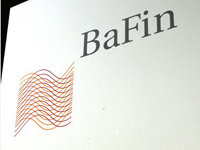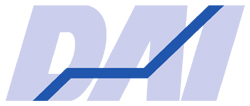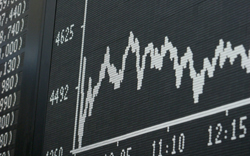Campus
Enlightenment in the interest scandal will take time
 In the course of the interest scandal new requirements are likely to be placed on banks involved in the fixing of the Euribor rate. Observers expect that the German Federal Financial Supervisory Authority (BaFin) will soon adopt specific guidelines for reporting procedures. Eight German banks which are or have been involved in the determination of the European reference rate Euribor must by 26 July disclose in writing their internal processes for calculating the interest and monitoring their mechanisms. Should grounds for suspicion emerge they could be threatened with a special audit. Among those Involved in the determination of the Euribor are Deutsche Bank, Commerzbank, DZ Bank, LBBW, BayernLB, Helaba, NordLB and Landesbank Berlin. The German financial authority expects no quick results from the ongoing investigations, however. Millions of records, e-mails and documents would have to be checked first, said BaFin boss Elke König . At the end of the ongoing investigation into possible Euribor manipulation the duty to integrate compliance, not yet prescribed in Germany, could be introduced.
In the course of the interest scandal new requirements are likely to be placed on banks involved in the fixing of the Euribor rate. Observers expect that the German Federal Financial Supervisory Authority (BaFin) will soon adopt specific guidelines for reporting procedures. Eight German banks which are or have been involved in the determination of the European reference rate Euribor must by 26 July disclose in writing their internal processes for calculating the interest and monitoring their mechanisms. Should grounds for suspicion emerge they could be threatened with a special audit. Among those Involved in the determination of the Euribor are Deutsche Bank, Commerzbank, DZ Bank, LBBW, BayernLB, Helaba, NordLB and Landesbank Berlin. The German financial authority expects no quick results from the ongoing investigations, however. Millions of records, e-mails and documents would have to be checked first, said BaFin boss Elke König . At the end of the ongoing investigation into possible Euribor manipulation the duty to integrate compliance, not yet prescribed in Germany, could be introduced.
Stock investments experience a renaissance in Germany
 The total number of domestic shareowners and mutual fund holders rose a surprising degree in the first half year. Overall, according to the latest survey by the German Share Institute (DAI), 10.2 million people were investing, including three million directly in individual stocks and more than five million in funds. That is equivalent to 15.7 percent of the population, and is 17.1 percent, or 1.5 million, more investors than in the second half of 2011. There was a still greater increase only in the exceptional year 2000, with 3.6 million new equity investors. Share ownership has thus reached its highest level since 2007 and completely recovered from the Lehman crisis. In 2001, the record of 13 million shareholders was set, but with the end of the "bull market" the number fell again. The low interest rates on conventional investments, such as day and time deposits, and the fear of the debt crisis, are driving the citizens despite sometimes violent fluctuations on the Exchange.
The total number of domestic shareowners and mutual fund holders rose a surprising degree in the first half year. Overall, according to the latest survey by the German Share Institute (DAI), 10.2 million people were investing, including three million directly in individual stocks and more than five million in funds. That is equivalent to 15.7 percent of the population, and is 17.1 percent, or 1.5 million, more investors than in the second half of 2011. There was a still greater increase only in the exceptional year 2000, with 3.6 million new equity investors. Share ownership has thus reached its highest level since 2007 and completely recovered from the Lehman crisis. In 2001, the record of 13 million shareholders was set, but with the end of the "bull market" the number fell again. The low interest rates on conventional investments, such as day and time deposits, and the fear of the debt crisis, are driving the citizens despite sometimes violent fluctuations on the Exchange.
DAX CEOs earn significantly more
 For the eleventh year shareholder association Deutsche Schutzvereinigung für Wertpapierbesitz (DSW) has presented its highly regarded study on the remuneration of directors in DAX companies. DSW has here for the first time in this survey, produced jointly with the Chair of Management at the Technical University of Munich, sifted annual reports for the potential maximum remuneration of the CEO. At 28 DAX companies the shareholder association found what it was looking for. Only Merck and Volkswagen did not have caps. The carmaker did however make clear at the last AGM that it did have a cap, and according to DSW the pharmaceutical and chemical company introduced one in 2012. Overall, the DAX-30 executives earned an average of 7.9 percent more in 2011 than in 2010. While growth compared to 2010 stands out as 22 percent lower, the overall trend continues upward unabated. On an international comparison the salaries of German executives are now at a high level, the study says. DSW country director Christiane Hoelz is appealing to the Code Commission to regulate salary limits still more clearly.
For the eleventh year shareholder association Deutsche Schutzvereinigung für Wertpapierbesitz (DSW) has presented its highly regarded study on the remuneration of directors in DAX companies. DSW has here for the first time in this survey, produced jointly with the Chair of Management at the Technical University of Munich, sifted annual reports for the potential maximum remuneration of the CEO. At 28 DAX companies the shareholder association found what it was looking for. Only Merck and Volkswagen did not have caps. The carmaker did however make clear at the last AGM that it did have a cap, and according to DSW the pharmaceutical and chemical company introduced one in 2012. Overall, the DAX-30 executives earned an average of 7.9 percent more in 2011 than in 2010. While growth compared to 2010 stands out as 22 percent lower, the overall trend continues upward unabated. On an international comparison the salaries of German executives are now at a high level, the study says. DSW country director Christiane Hoelz is appealing to the Code Commission to regulate salary limits still more clearly.















